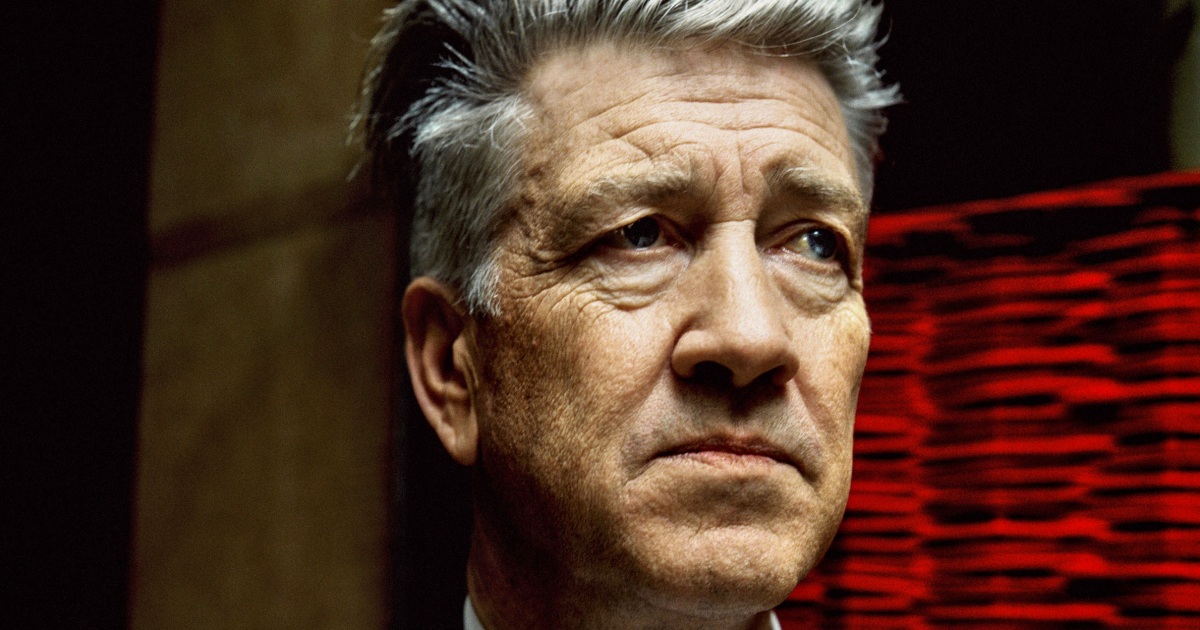David Lynch, the surrealist artist who plumbed the darkness lurking underneath American normalcy in the landmark television series “Twin Peaks” and the dreamlike films “Blue Velvet” and “Mulholland Drive,” has died.
He was 78.
Lynch’s family confirmed his death in a post on his official Facebook page. They did not specify a cause of death. He revealed last year that he had been diagnosed with emphysema, a chronic lung condition that causes shortness of breath.
“It is with deep regret that we, his family, announce the passing of the man and the artist, David Lynch,” the post said. “We would appreciate some privacy at this time.”
“There’s a big hole in the world now that he’s no longer with us,” Lynch’s family added. “But, as he would say, ‘Keep your eye on the donut and not on the hole.’ It’s a beautiful day with golden sunshine and blue skies all the way.”
In a career spanning more than a half century, Lynch established himself as one of the most stylistically distinctive and thematically daring voices in American entertainment, introducing audiences to images and ideas typically associated with avant-garde art.
He was revered by cinephiles across generations, producing mysterious work that was feverishly analyzed and debated. He fearlessly broke narrative conventions in hallucinatory experimental films like “Lost Highway and “Inland Empire.”
Lynch’s key preoccupation was the strangeness beneath the surface of America’s white-picket-fence ideal, though he also dabbled in science fiction (1984’s “Dune”) and made one G-rated road movie (1999’s “The Straight Story”).
“Twin Peaks” (1990-91) was a revolutionary series and an uncanny blend of genres: serialized murder mystery, metaphysical horror story, deadpan comedy, and prime-time soap opera. It was unlike anything on television before or since.
“Blue Velvet” (1986), a noir that plays out like a night terror, cemented Lynch as one of the essential American filmmakers of his era, becoming a timeless classic with its unsettling exploration of corruption and abuse.
“Mulholland Drive” (2001), originally conceived as a television series, attracted a cult following and quickly became one of the first midnight movies of the 21st century. When the British magazine Sight and Sound asked critics in 2022 to name the greatest films of all time, “Mulholland Drive” came in eighth.
In recent years, Lynch was less of a visible presence on screens. “Inland Empire,” his final feature, debuted in theaters nearly 20 years ago. He returned to the world of “Twin Peaks” in 2017 with an 18-part limited series on Showtime that cast a spell over admirers and new fans alike.
David Keith Lynch was born on Jan. 20, 1946, in Missoula, Montana. In his early years, he dreamed of becoming a painter and, following high school, he enrolled at the School of the Museum of Fine Arts in Boston.
He later studied at the Pennsylvania Academy of the Fine Arts, where he created his first film: a 60-second animation titled “Six Men Getting Sick.”
In the early 1970s, when Hollywood was starting to embrace the energy and chaos of the counterculture, Lynch enrolled at what is now known as the American Film Institute Conservatory in Los Angeles.
It’s there that Lynch started working on his first feature-length project: “Eraserhead,” a startling black-and-white odyssey about an unsettled man (played by Jack Nance) who is forced to take care of a deformed child in an alienating industrial cityscape.
“Eraserhead” landed in theaters in March 1977 and divided audiences: some viewers and critics found it repulsive, while others were entranced. It is now regarded as a seminal independent film.
Lynch’s next project was made for a major studio, Paramount Pictures, but was no less unusual. “The Elephant Man” was loosely based on the life of Joseph Merrick, a physically deformed British artist who was exhibited at London “freak shows” under the stage name that gives Lynch’s movie its title.
“The Elephant Man” was a critical favorite and a modest commercial success, providing an early example of Lynch’s preternatural talent for making an iconoclastic art-house sensibility intriguing to mainstream American audiences.
The success of “The Elephant Man” led to Lynch’s hiring on “Dune,” an ambitious adaptation of Frank Herbert’s sci-fi opus, starring regular Lynch collaborator Kyle MacLachlan in the role of Paul Atreides. “Dune” was a box office and critical misfire that Lynch all but disowned.
MacLachlan credited Lynch in an Instagram post Thursday for his career and remembered him as “an enigmatic and intuitive man with a creative ocean bursting forth inside of him.”
“He was in touch with something the rest of us wish we could get to,” MacLachlan wrote.
“Blue Velvet,” Lynch’s next project, follows a naive college student (played by MacLachlan) who uncovers a local conspiracy after finding a severed human ear in a deserted field. The movie, named after a popular 1950s song, evoked and distorted the midcentury suburban fantasy.
It was released at the height of the Reagan era and provoked intense critical debate. Roger Ebert famously panned it, though other critics hailed it as a brave and unsparing look at the underbelly of small-town ordinariness. It is now arguably Lynch’s best-known feature.
Lynch directed Nicolas Cage and Laura Dern in the high-voltage lovers-on-the-run drama “Wild at Heart” (1990) the same year “Twin Peaks” debuted on ABC. The eccentric series was an almost immediate cultural phenomenon as viewers tuned in to figure out who killed high school student Laura Palmer.
The first season of “Twin Peaks” inspired future television auteurs such as David Chase, who credited the show’s mystifying tone as a key influence on HBO’s “The Sopranos.” The second season of “Peaks” was more of a mixed bag, and ABC canceled the series after 48 episodes.
Lynch twice revisited the bizarre universe of “Twin Peaks,” first in an unnerving and tragic prequel film (“Twin Peaks: Fire Walk with Me,” released in 1992) and again in the 2017 limited series “Twin Peaks: The Return,” which aired on Showtime over five months in 2017.
Lynch continued to defy convention in the late 1990s and early 2000s. He surprised nearly everyone when he made “The Straight Story,” a gentle, family-friendly road trip drama released by Disney in 1999. (It is currently the only Lynch movie parents and kids can stream on Disney+.)
“Lost Highway,” a bleak neo-noir released in 1997, marked an artistic turning point for Lynch as he pushed deeper into fractured, impressionistic narratives that left key plot points unexplained and challenged viewers to interpret events for themselves.
“Mulholland Drive,” which debuted four years later, revolves around an aspiring actress (Naomi Watts) who chases after stardom in L.A. but soon finds her dreams curdling into a nightmare. “Inland Empire” covered similar thematic territory with an even more elusive and challenging style.
(“Mulholland Drive” was distributed by Universal Pictures, a unit of NBC News’ parent company, NBCUniversal.)
Lynch, who occasionally played small or uncredited roles in his own movies, showed up for a brief but amusing cameo as Hollywood giant John Ford in Steven Spielberg’s “The Fabelmans” (2022). It was his final on-screen appearance in a major production.
Lynch never won an Academy Award, though he was nominated for directing “The Elephant Man,” “Blue Velvet” and “Mulholland Drive.” He was presented an honorary Oscar in 2019 for lifetime achievement.
“Wild at Heart” won the Palme d’Or at the 1990 Cannes Film Festival. Lynch earned Cannes’ best director prize for “Mulholland Drive” in 2001, sharing the award with Joel and Ethan Coen for “The Man Who Wasn’t There.”
Lynch’s activities outside filmmaking were suitably eclectic.
He recorded experimental music, painted, wrote three books, directed commercials and advocated for the practice of Transcendental Meditation, or TM. He founded the David Lynch Foundation, a charitable organization that aims to teach students about the benefits of meditation.
He also uploaded short videos to social media in which he described weather conditions in Los Angeles in earnest, plainspoken language.
He was married four times, to Peggy Lenz, Mary Fisk, Mary Sweeney and Emily Stofle. He had four children, including the filmmaker Jennifer Chambers Lynch.





